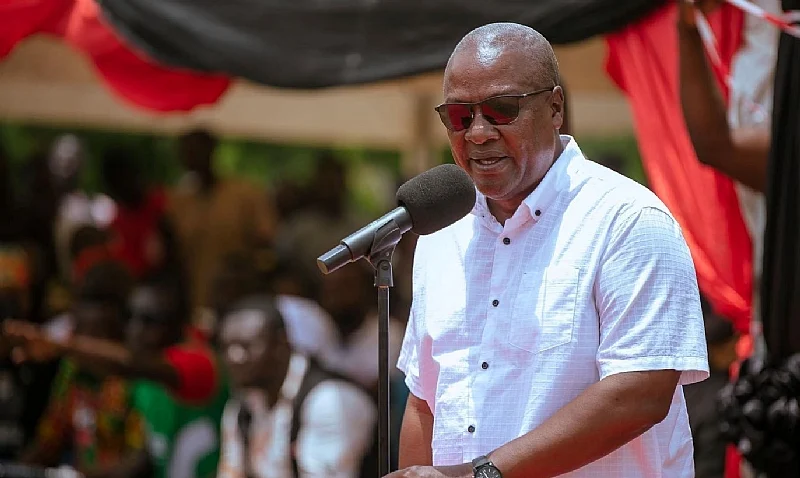In a significant announcement that aims to reshape parental leave policies in Ghana, John Dramani Mahama, the flagbearer of the National Democratic Congress (NDC), has pledged to implement a one-week paternity leave for men if he secures victory in the upcoming December elections. This commitment was made during the NDC Women’s Manifesto launch held in Kumasi, where Mahama emphasized the importance of supportive family structures in nurturing newborns. His proposed paternity leave policy is designed to encourage active participation from fathers during the formative weeks of their child’s life, recognizing the essential role that both parents play in early child development.
Furthermore, in response to the challenges faced by new mothers, Mahama also announced plans to extend maternity leave from the existing three months to four months. This extension is intended to provide women with additional time to bond with their infants and recover from childbirth without the stress of returning to work too soon. By advocating for increased maternity leave, Mahama is addressing the importance of maternal health and the well-being of newborns, ultimately promoting a stable environment for early childhood growth. The emphasis on longer leave periods highlights a progressive shift towards prioritizing family needs alongside workplace demands, ensuring that both parents can contribute to the nurturing of their children.
Mahama’s initiative represents a broader vision for enhancing gender equity in caregiving roles. His acknowledgment of the need for paternity leave reflects a growing understanding of shared parental responsibilities in modern families. By allowing fathers to take time off work to support their partners and engage in childcare, Mahama is challenging traditional gender norms that often designate caregiving primarily as a female responsibility. This shift not only supports mothers during a critical time but also fosters stronger bonds between fathers and their newborns, setting a foundation for active fatherhood from the onset of a child’s life.
However, it is important to note that this proposed paternity leave is specified for legally married men, a requirement that Mahama has made clear. To qualify for this benefit, fathers will need to present proof of their marital status. This stipulation has been introduced to ensure that the paternity leave is directed towards those who are in a committed relationship with the mother of the child, reinforcing the traditional framework of family structures. While this approach may help to prevent potential abuse of the policy, it raises questions about inclusivity, particularly for unmarried or single fathers who also play crucial roles in their children’s lives.
The promise of these initiatives comes in the context of a political campaign, with Mahama positioning the NDC as a party that champions progressive policies benefiting families. By addressing parental leave and family welfare, the NDC aims to resonate with voters who prioritize social and family issues in their electoral decisions. Mahama’s proposals thus not only serve to enhance the welfare of families but also represent a strategic move to connect with constituents on a deeply personal level. It reflects an understanding that policies affecting family dynamics can be pivotal in garnering support from the electorate.
In conclusion, John Dramani Mahama’s pledge for one-week paternity leave and the extension of maternity leave signify a significant investment in the welfare of families in Ghana. By focusing on nurturing healthy family environments, his initiatives could promote greater involvement from fathers and bolster support for mothers during critical periods of child development. As these proposals are put forward, the potential impact on gender role perception, family dynamics, and overall parental participation in child-rearing will be closely watched, marking an important moment in Ghana’s approach to family policy and social equity.


